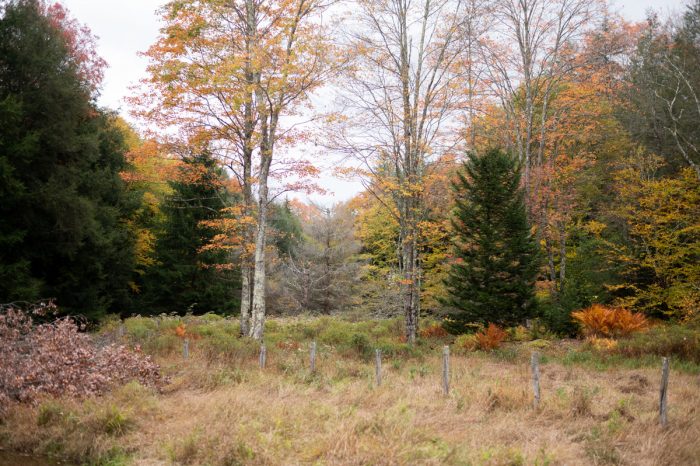The cool nights, crisp winds, and colorful foliage is a clear sign fall has descended upon the Mountain State. With the onset of this beautiful season, outdoor enthusiasts eagerly gear up to embrace the natural resources this state has to offer.
Whether your passion lies in hunting, hiking, fishing, paddling or camping, the goal is a rewarding and successful outdoor adventure. However, amidst the excitement, it is crucial to keep safety as the top priority when prepping for your trip.
That’s why the West Virginia Division of Natural Resources’ Law Enforcement Section and the West Virginia Department of Homeland Security are teaming up to give outdoorsmen and women advice on what they need to do in preparation for their outdoor excursion and what they should do if they become lost on their adventure.
Safety Tips for Your Trip
Getting lost, especially in the wild woods of West Virginia, can be overwhelming, but with the right knowledge and preparation, you can increase your chances of survival and find your way back to safety.
From the West Virginia Emergency Management Division’s Search and Rescue Coordinator, these tips can help you stay calm, make informed decisions, and ultimately, make it out of the woods safely. Whether you’re a hunter or just an occasional hiker, this information could be a lifesaver when you find yourself facing the unexpected while in the woods.
Here are 10 important tips from WVEMD’s Search and Rescue veterans about what people can do if they become lost.
Stay Calm and Stay Put
The moment you realize you’re lost, STOP moving. The best course of action is often to stay put. Panic and wandering can make it harder for search teams to locate you.
Signal for Help
Use items such as whistles, mirrors, bright clothing, or a flashlight to attract attention. Three short whistle blasts, flashlight beams (flicking flashlight on and off), or other signals repeated in a series of three represent the universal distress signal.
- You may build a fire to signal rescuers, but only if it is absolutely safe to do so.
Tell Someone Your Plans
Always inform a friend or family member about your planned route and estimated return time. This information can greatly assist search teams in locating you if needed.
- Make sure to include where you’ll park your vehicle, especially when going hunting.
Carry Essential Supplies
Pack a small survival kit containing water, food, flashlights (more than one), a first aid kit, a multi-tool, an emergency or space blanket, and a whistle. An added survival supply is a filtration straw which allows you to drink water more safely from creeks or streams in an emergency. These items can support you until help arrives.
- Include medications vital to your health, including epi-pens, asthma inhalers, diabetes supplies, etc.
- Remember, a cell phone does not replace survival items like a map or flashlight. Always carry items in your survival kit in case you are in an area with no coverage, or you can’t charge your phone.
Stay Visible
If you need to move to find help, stay in open areas and make yourself visible. Avoid dense vegetation or steep terrain that might hinder your movement.
- If it is safe to do so, build a fire. This can help keep you warm and help rescuers find you.
Follow Waterways
If you’re in an unfamiliar area, following a river or stream can often lead you to civilization. People tend to settle near water sources.
Stay Hydrated and Rest
Conserve energy by staying hydrated and resting when needed. Overexertion can lead to exhaustion and disorientation.
Use Landmarks
If you have a map and can identify landmarks, you might be able to navigate yourself back to safety. Always carry a map and compass when venturing into unfamiliar territory.
Stay Warm
Hypothermia can set in quickly, even in mild weather. Dress in layers and use your survival kit to stay warm.
- Carrying an emergency blanket can keep you warm and help you signal for help.
Stay Positive and Stay Vocal
Maintain a positive mindset and keep talking to yourself or to searchers. This not only boosts your morale but can also help search teams locate you.
Please note that these are general guidelines and may need to be adapted based on the environment and situation you find yourself in. Always prioritize your safety and follow any instructions provided by local officials or search and rescue teams.
For more information about WVEMD Search and Rescue training, contact WVEMD Search and Rescue Coordinator Jeff.O.Cunningham@wv.gov.

